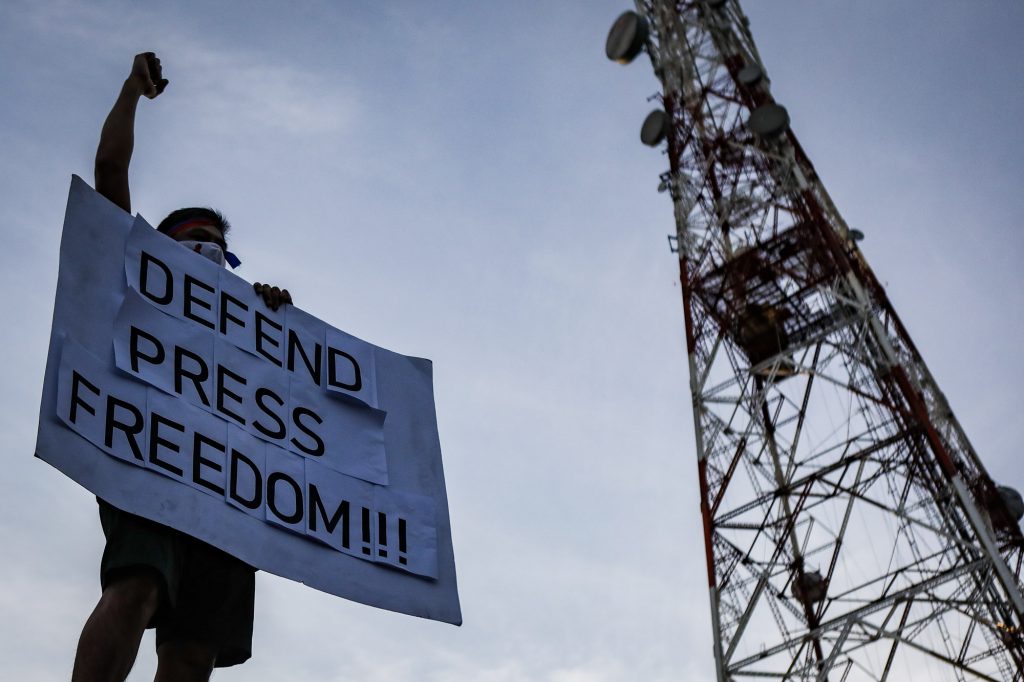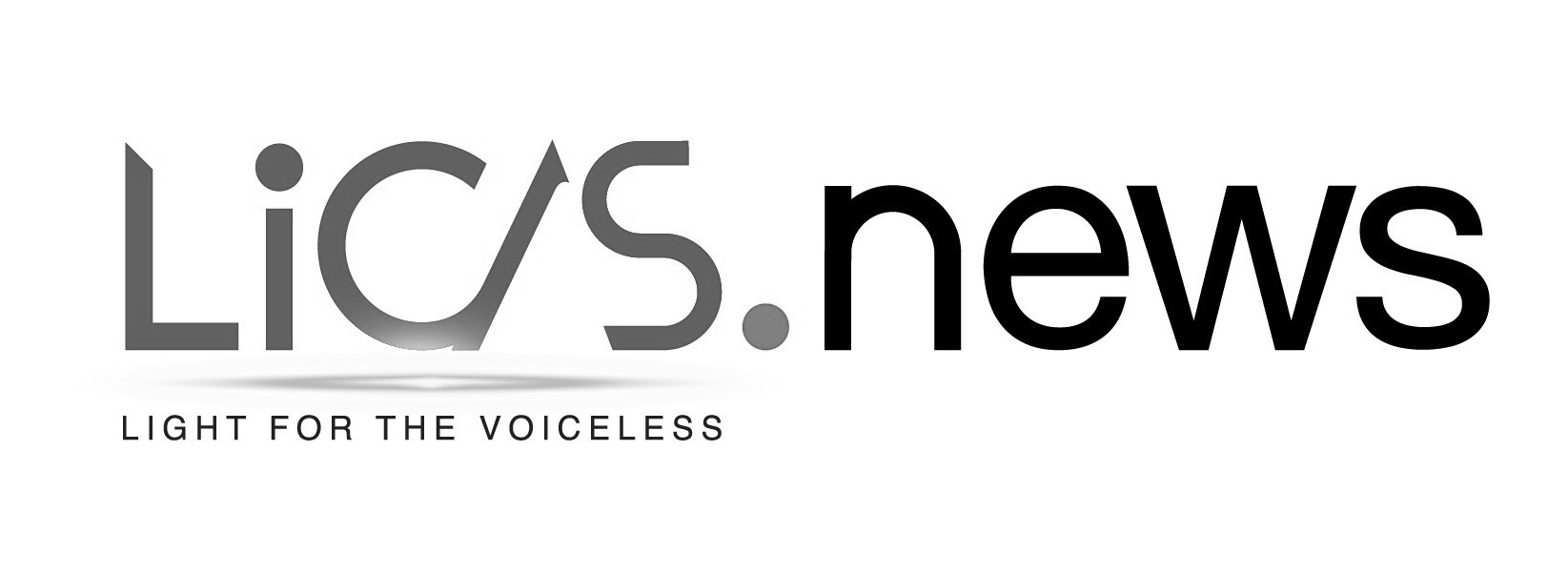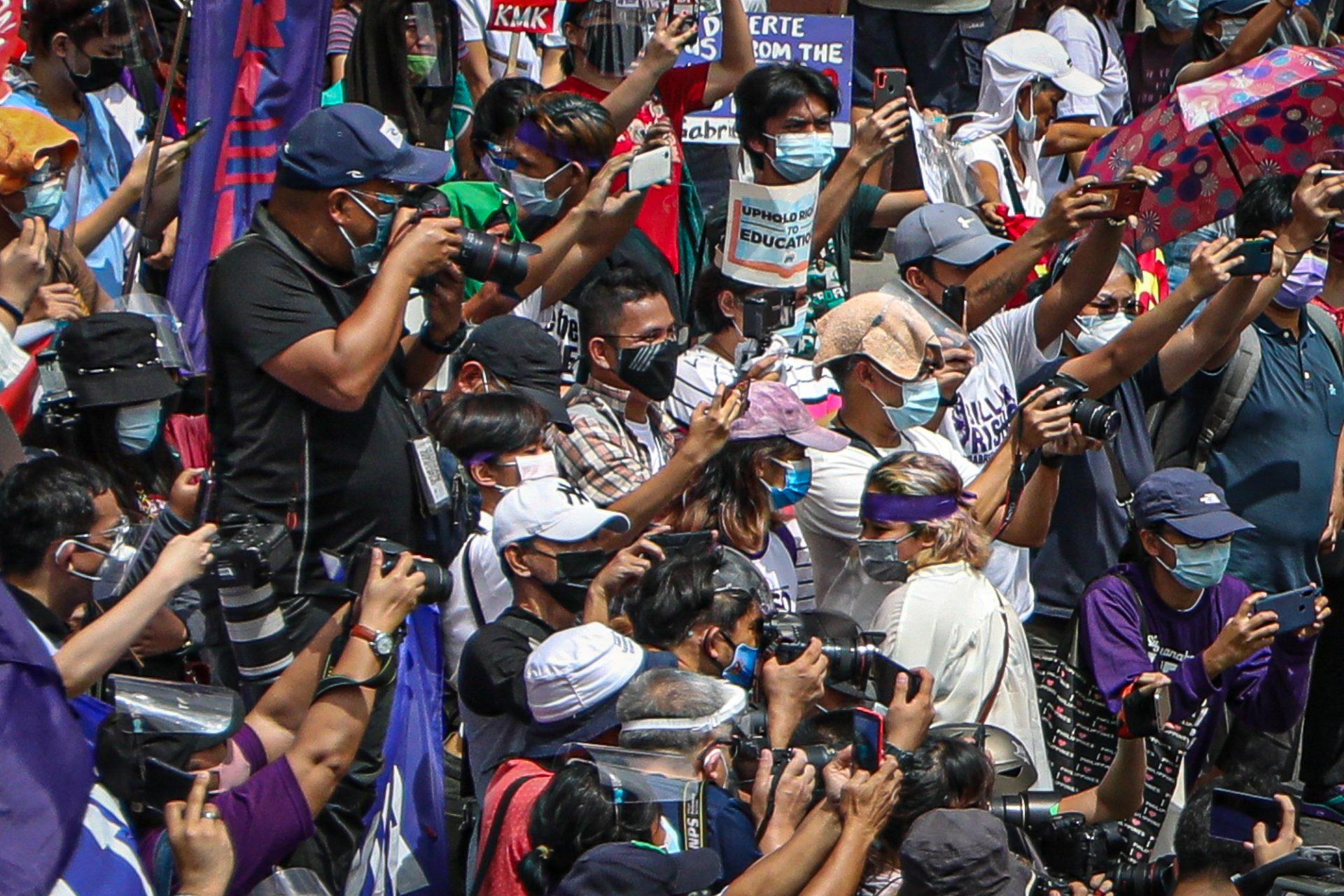The spread of “opinion media” online has amplified information chaos that widened the polarization within and among countries, said the Reporters Without Borders (RSF) on May 3, World Press Freedom Day.
In its 20th World Press Freedom Index, the media watchdog showed a “worrying” two-fold increase in what it described as “polarization” on the back of unregulated online information space, which encouraged the spread of fake news and propaganda.
The group said the information chaos has led to “disastrous effects,” such as the invasion of Ukraine by Russia that was preceded by a propaganda war. RSF said social media and the “opinion media” has also fueled political tension in France and has fed social division in the United States.
“The creation of media weaponry in authoritarian countries eliminates their citizens’ right to information, but is also linked to the rise in international tension, which can lead to the worst kind of wars,” said Christophe Deloire, RSF secretary general, in a statement.
New methodology
The 2022 World Press Freedom Index took a different methodology by defining press freedom as “the effective possibility of journalist to produce and disseminate news independently from political, economic, legal, and social interference.”
In the new ranking, Norway, Denmark, and Sweden remained at the top “where freedom of expression flourishes,” while Iran, Eritrea, and North Korea is at the bottom among 180 countries.
In the Asia-Pacific region, which holds more than half of the world’s population, press freedom has deteriorated dramatically as more countries tightened their grip on the media, said the report.
Citing examples, RSF said Hong Kong slipped 68 places this year as it suffers under China’s extension of its information control model.
“In countries reputed to be more democratic, the media face pressure from increasingly authoritarian and/or nationalist governments, such as India, Sri Lanka, and the Philippines,” added the report.
It noted that the region’s media “fall prey to the growing control of large industrial groups, whose influence encourages the self-censorship of journalists and editorial staff,” like the ones in Japan, South Korea, and Australia.
On the other hand, the press has experienced more freedom in emerging democracies, such as Bhutan, East Timor, and Mongolia. New Zealand’s policies on political and economic influence has placed it as the model country in the region.

Freedom under threat
In the Philippines, as the May 9 national and local elections near, the media face bigger challenges, such as media “discreditation” and attacks.
Several media organizations raised alarms over what they said as the “chilling effect” in the media of a possible victory in the presidential race of Ferdinand Marcos Jr.
The National Union of Journalists of the Philippines (NUJP) called on the media to support and stand for each other, especially in times when “it is easy to fall into the trap of hopelessness.”
“It would help to remember that we have not weathered the threats and attacks alone,” said the group in a statement.
“We are now closer to the spirit of collaboration and solidarity that is our best hope in what have been dark days for the press in the Philippines and the region,” it added.
It also reiterated its commitment to holding truth to power regardless of who becomes president of the country.
“[We] mark the World Press Freedom Day with determination that the community of independent journalists will not rise or fall on the outcome of [the] elections, that the work that we do will continue whoever is in power,” read the NUJP statement.
The Foreign Correspondents Association of the Philippines (FOCAP), meanwhile, expressed grave concern over attacks done by Marcos supporters on journalists.
Marcos’ camp has also reportedly refused access to some journalists during the campaign sorties.
“All these restrictive actions undermine a critical and free press in an Asian bulwark of democracy and have sparked fears of how independent media would be treated under a possible Marcos presidency,” said the group in its statement.
FOCAP, which was established during the years of martial law under the late dictator Ferdinand Marcos Sr., assured that it will not stand idly when its members and colleagues face “intimidation and unreasonable restraints.”
The Committee to Protect Journalists reported that 88 Filipino journalists were killed with confirmed motive from 1992 until 2022.
The United Nations proclaimed May 3 as World Press Freedom Day through the efforts of the United Nations Educational Scientific and Cultural Organization to raise awareness of the importance of freedom of the press and to remind governments of their duty to respect and uphold the right to freedom of expression that is enshrined under Article 19 of the 1948 Universal Declaration of Human Rights
This year, UNESCO marks the event with the theme “Journalism under Digital Siege,” the digital era’s impact on freedom of expression, the safety of journalists, access to information and privacy.







